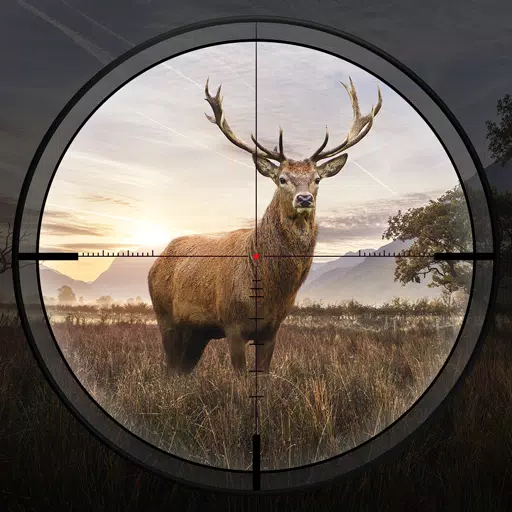Ridley Scott's Lost Dune: A 40-Year-Old Secret Unveiled
This week marks four decades since David Lynch's Dune premiered, a box office flop that later cultivated a devoted cult following. This stands in stark contrast to Denis Villeneuve's recent big-screen adaptation of Frank Herbert's epic novel. Ridley Scott, initially attached to direct, departed the project before David Lynch took the helm. Until now, details about Scott's version remained scarce.
Thanks to T.D. Nguyen's discovery of a 133-page October 1980 draft within the Coleman Luck archives at Wheaton College, we now have access to Rudy Wurlitzer's ( Two-Lane Blacktop, Walker) script for Scott's abandoned Dune film.
Scott, fresh off the success of Alien, inherited Frank Herbert's sprawling, un-cinematic two-part screenplay. He selected a handful of scenes, then enlisted Wurlitzer for a complete rewrite. This version, like Herbert's and Villeneuve's, was envisioned as the first part of a two-film saga.
Wurlitzer described the project as incredibly challenging, stating it took longer to structure the narrative than to write the final script. Scott himself later praised the script's quality.
Numerous factors contributed to the project's collapse: the death of Scott's brother, his reluctance to film in Mexico (as De Laurentiis demanded), escalating budget concerns (over $50 million), and the allure of the Blade Runner project. However, Universal executive Thom Mount cited a lack of unanimous enthusiasm for Wurlitzer's script as a key reason for its demise.
Was the script a cinematic failure, or simply too dark, violent, and politically charged for a mainstream release? A detailed analysis of the script allows for a personal judgment. While Wurlitzer and Scott declined to comment, the script itself speaks volumes.
A Reimagined Paul Atreides
Wurlitzer's Dune opens with a dream sequence depicting apocalyptic armies, foreshadowing Paul's destiny. The script's visual descriptions, reminiscent of Scott's signature style, are richly evocative. Instead of Timothée Chalamet's portrayal, Paul is a seven-year-old, undergoing a trial by the Reverend Mother, his Litany Against Fear intercut with his mother's, highlighting their psychic bond. While Lynch's version featured imagery of a burning hand, Wurlitzer's version makes it clear this is a psychic experience.
This Paul displays a "savage innocence," actively taking charge, unlike Lynch's more vulnerable depiction. The script even includes a flash-forward showcasing his transformation into a master swordsman by age 21, surpassing Duncan Idaho (who replaces Gurney Halleck). This assertive Paul is a departure from Lynch's portrayal, which emphasized vulnerability and created more suspense.
The Emperor's Demise and Political Intrigue
The script shifts to Castle Caladan, where the news of the Emperor's death arrives, a pivotal plot point absent from the book. The Emperor's death, revealed in a visually striking scene within a mystical circle, becomes the catalyst for the events that follow. The Baron Harkonnen, seeking to control Arrakis' spice production, proposes a partnership with Duke Leto, which is rejected. A key dialogue exchange echoes the famous "He who controls the spice controls the universe" line from Lynch's film.
The Guild Navigator and Arrakis
The script features a Guild Navigator, a spice-mutated being, depicted as an elongated, humanoid creature, foreshadowing elements of Scott's later film Prometheus. The family's arrival on Arrakis showcases a medieval aesthetic, with detailed descriptions of Arakeen, echoing the visual style of Scott's Legend.
The ecological impact of spice mining is emphasized through scenes with Liet Kynes, highlighting the environmental devastation. The script also depicts the stark class disparity in Arakeen, a social commentary absent from the film adaptations.
A new action sequence depicts Paul and Duncan engaging in a violent bar fight, a departure from the source material. This scene, while adding action, arguably diminishes Paul's vulnerability and growth arc. The encounter with Stilgar and the subsequent killing of a Harkonnen agent further intensifies the action.
The script includes intimate scenes between Jessica and the Duke, explicitly depicting their conception of Alia. This scene, however, was later removed due to objections from Herbert and De Laurentiis. Despite the removal of the explicit sexual encounter, a scene of Paul and Jessica lying together on a sand dune remains.



The Desert Escape and Fremen Encounter
Paul and Jessica's escape into the desert is depicted with intense detail, emphasizing the harsh environment and physical challenges. The script features a dramatic crash landing and a close encounter with a giant sandworm, similar to Villeneuve's adaptation. The script also features a scene where Paul inhales blue spice and has a vision of his sister Alia. The script also features a scene where Paul hypnotizes a baby sandworm.
The Fremen encounter and the duel with Jamis are depicted with graphic violence, mirroring aspects of Lynch's film but with increased intensity. The script also features a scene where Paul and Duncan engage in a bar fight.
The script culminates in a Water of Life ceremony, featuring a shaman with three breasts and a man's genitals, accompanied by a sandworm. Jessica drinks the Water of Life, merging with the Reverend Mother's aura, resulting in her becoming the new Reverend Mother. The script concludes with Paul, Jessica, and Chani uniting the Fremen, setting the stage for future conflicts.
A Bold, Unconventional Vision
While significantly different from Herbert's novel and previous adaptations, Wurlitzer's script offers a unique perspective on Dune, emphasizing its ecological, political, and spiritual themes. The script’s darker, more violent tone, and its focus on Paul's ruthless ambition, likely contributed to its rejection. However, its bold vision and exploration of complex themes offer a fascinating glimpse into a Dune that never was. The script's emphasis on ecological themes and the dangers of charismatic leadership resonates with contemporary concerns, suggesting that a future adaptation might find inspiration in this lost vision.







